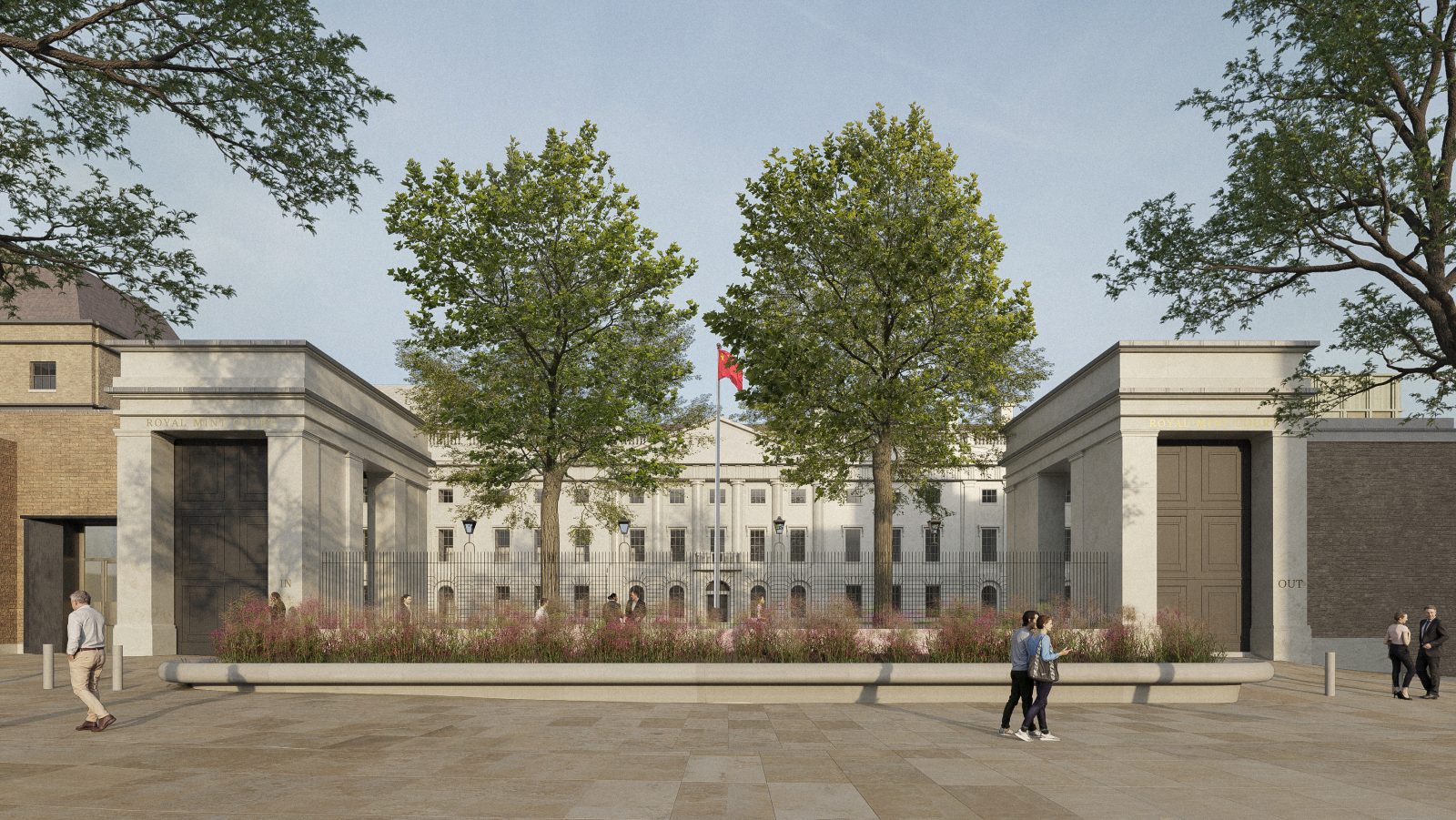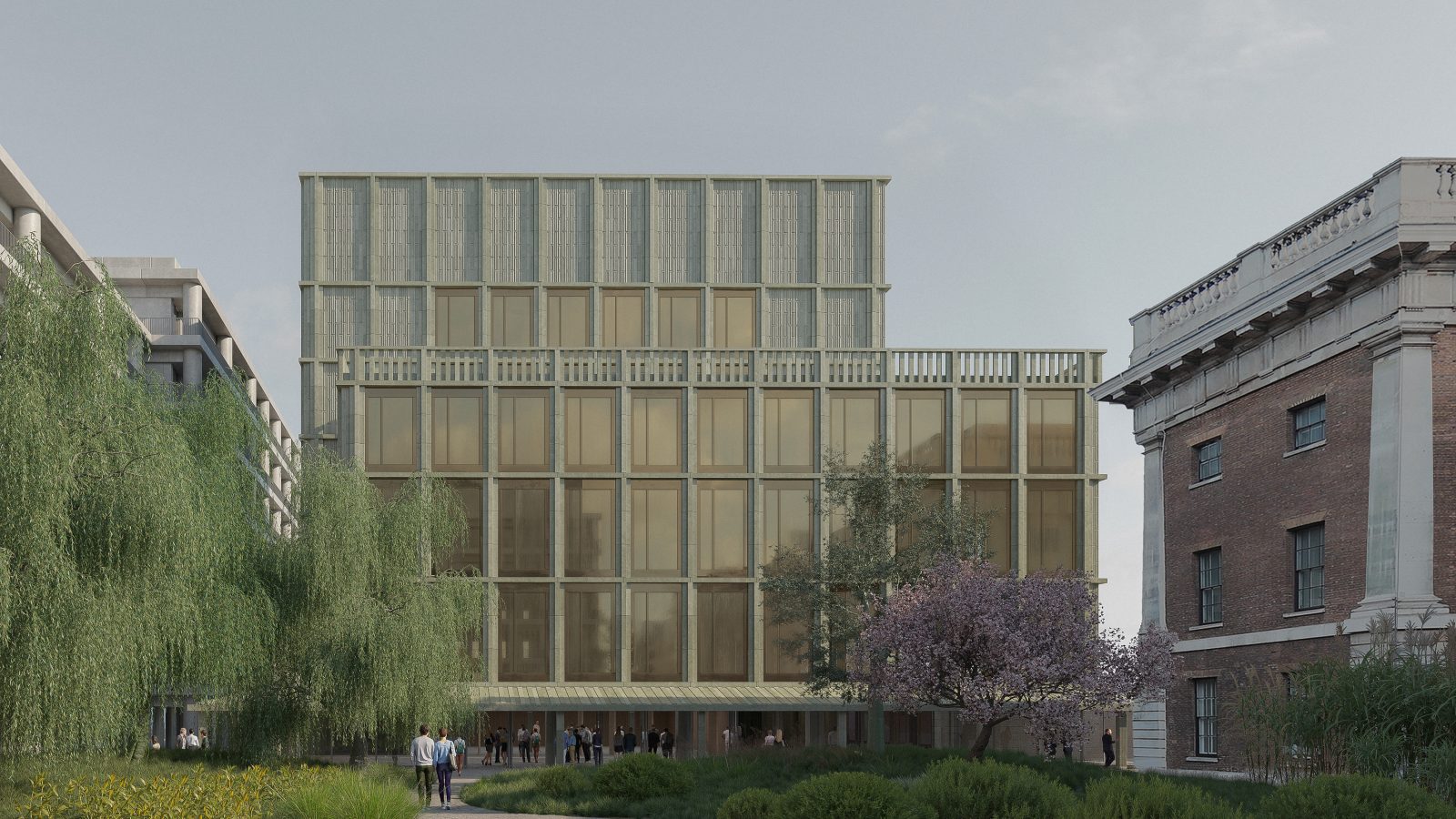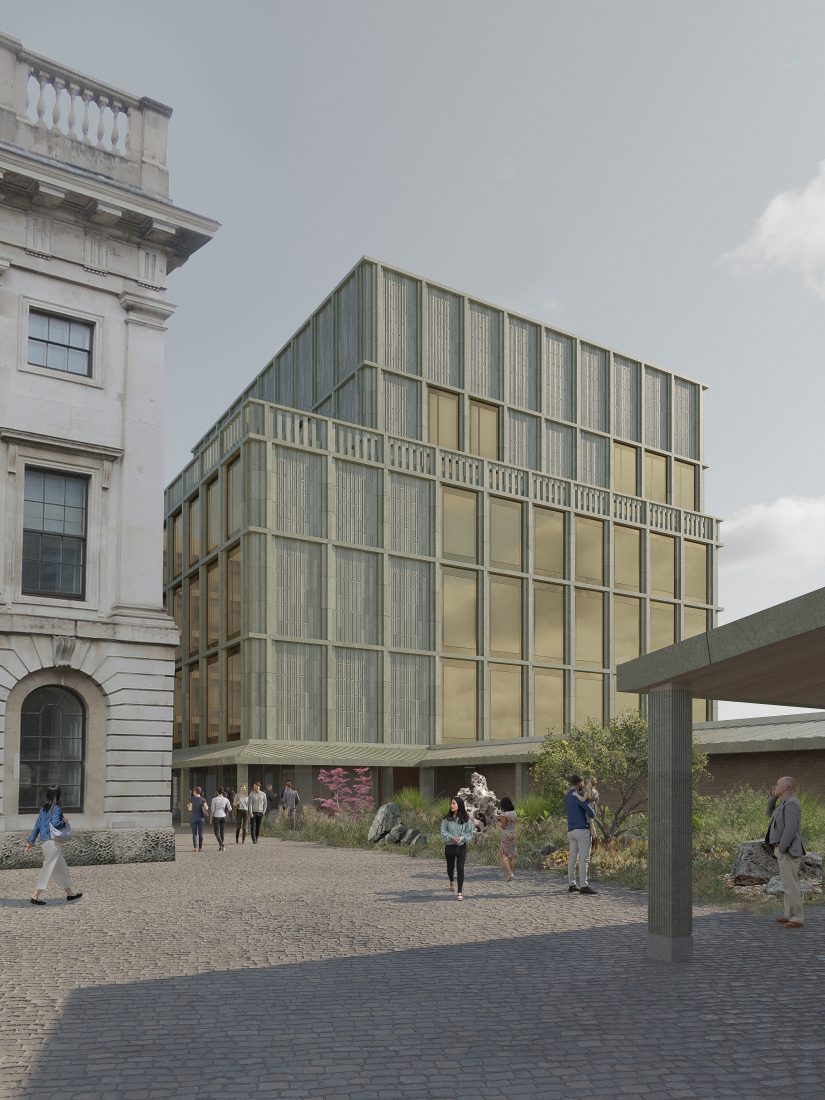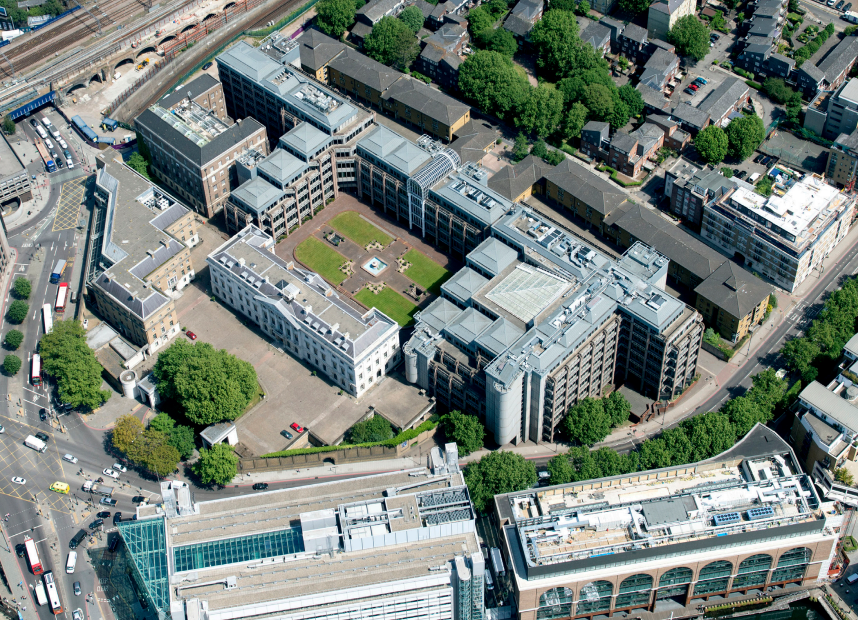The scheme would have created accommodation, offices and a cultural centre for the Chinese Embassy within a range of existing buildings on the 2.3ha Royal Mint site opposite the Tower of London.
But it was unanimously refused permission by Tower Hamlets Council in December last year – a decision upheld by London mayor Sadiq Khan in February.
China is now understood to have abandoned the project after it failed to submit an appeal with the planning inspectorate before a deadline yesterday (10 August). The decision brings five years of planning and campaigning to an end.
Advertisement
A Tower Hamlets Council spokesperson said: ‘The time limit for the Chinese embassy or those acting on its behalf to make an appeal is six months from the decision date. The decision was issued on 10 February and so the deadline for an appeal is today (10 August).
‘If the applicant wanted to appeal through the public inquiry procedure then they would have already needed to have given notice to us as the local planning authority. We haven’t received any such notification from the applicant.’
Reuters reported last month (12 July) that the applicant then had six months to submit the case with central government and the planning inspectorate following Khan’s decision not to reverse Tower Hamlets’ ruling.
It also reported officials from both countries as saying the Chinese government had expressed ‘frustration over the failure to grant planning permission for its embassy at official-level meetings’.
A Chinese embassy spokesperson told the AJ on Tuesday (8 August) that it had urged the UK government to ‘fulfil its relevant international obligations’ over the project.
Advertisement
‘It is the international obligation of the host country to provide facilitations and support for the construction of diplomatic premises,’ they said.
In February the mayor’s team declared in its decision that there were ‘no sound planning reasons’ for him to overrule the council’s refusal.
Although planning officers had recommended the project for approval on the grounds that it was ‘well designed’, there had been huge controversy over the impact on the ‘safety and security’ of residents, such as those at the neighbouring Royal Mint Estate.
Opponents also expressed fears for the site’s heritage assets, its impact on the quality of the area as a tourist destination and the anticipated impact on local police resourcing as part of mitigation measures required in light of potential ‘acts of terrorism’.
Meanwhile, the Stop Uyghur Genocide group claimed the ‘fortress’ for the Chinese state would be both a ‘danger’ and a ‘disrespect’.
London deputy mayor for planning Jules Pipe said he was ‘content’ to allow Tower Hamlets to decide the application. The Greater London Authority also noted its own concerns over the project in an updated report earlier this year.
These include that the applicant had not submitted the required carbon emission reporting spreadsheet in Excel format, and had not justified its classification of a central courtyard as ‘intensive green roof or vegetation over structure’.
A statement that ‘specifically addresses the equalities considerations arising from the application’ was also outstanding, a GLA report said. ‘Any revised application must clearly address these considerations.’
Under Chipperfield’s plans, the Grade II*-listed Johnson Smirke Building at the centre of the former Royal Mint site would have been refurbished to include embassy space. A public square would have been created in front of it, behind the site’s gated entrance.
The Grade II-listed Seaman’s Register, which was remodelled by RMJM in the 1980s, would also have been refurbished, while a new Embassy House would have been made by splitting up and remodelling the currently conjoined, Sheppard Robson-designed Murray and Dexter House.
The longer building, Dexter House, was to contain 225 flats for embassy staff, with the building’s façade reconfigured to provide a ‘calmer and more unified’ backdrop to the surrounding listed buildings. Meanwhile, Murray House would have been repurposed into a new seven-storey Cultural Exchange building clad in green ceramic.
David Chipperfield Architects has been contacted for comment.
 The Architects’ Journal Architecture News & Buildings
The Architects’ Journal Architecture News & Buildings






Leave a comment
or a new account to join the discussion.